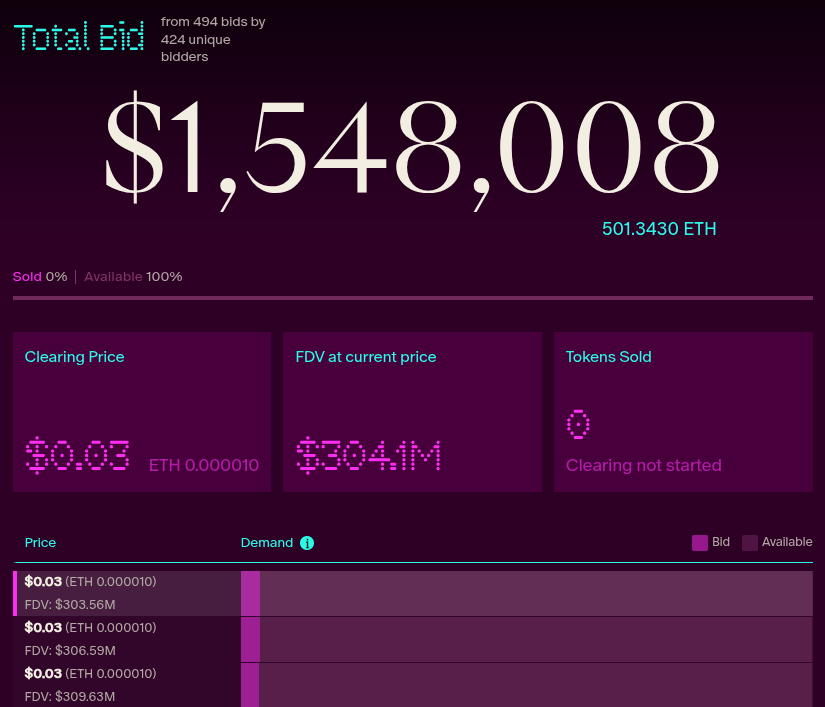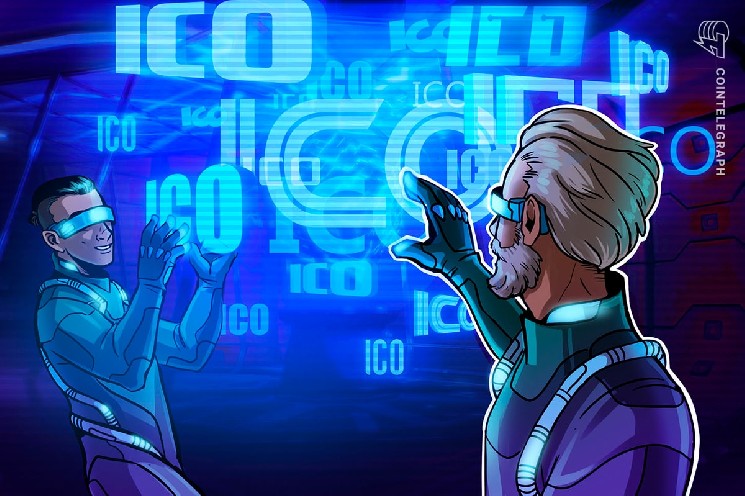Decentralized finance giant Uniswap has introduced Continuous Liquidation Auctions (CCA), a new protocol aimed at facilitating the offering of tokens through its infrastructure.
According to Thursday’s announcement, Uniswap’s CCA will “help the team bootstrap liquidity in Uniswap v4 and find market prices for new and illiquid tokens.” The company said this is just the “first of several tools” it is building to help projects launch and increase token liquidity on the platform.
This announcement coincides with preparation for the first CCA-enabled sales. Privacy-focused Aztec Network launched a community-only AZTEC token sale on Thursday, with the public phase scheduled for December 2nd.
The Aztec team claimed that it had “gained access to the community that made the 2017 ICO era great and made it even better.” The team reportedly worked with Uniswap to develop the new protocol, “prioritizing fair pre-launch access to community members and the general public, permissionless on-chain access.” The team stated that once the token is unlocked, the AZTEC token will be 100% community-owned.
Uniswap and Aztec did not respond to requests for comment.

Aztec’s CCA-enabled token sales interface. Source: Aztec
New token sales system
Uniswap said in a press release that “liquidity creation often takes place behind closed doors”, leading to “digital divides, the privilege of a few players” and sometimes “thin and volatile” markets. By leveraging CCA, both partners hope to create an on-chain native market with transparent pricing, bidding, and settlement, as well as implement tiered price discovery and automatic liquidity seeding to Uniswap’s decentralized exchange (DEX).
“There are no gatekeepers or off-chain transactions,” Uniswap said.
Related: DeFi players launch alliance to defend Ethereum to policymakers
The sale of CCA begins with the project defining the number of tokens to be sold, the starting price, and the duration of the auction. It can also support split execution, validation tools such as ZK Passport (a privacy-enhanced, zero-knowledge proof-based Know Your Customer implementation), or completely custom modules.
Users can bid by specifying a maximum price and total amount spent. Bids cannot be canceled within the range, but there is no limit to the number of bids. Each bid is automatically distributed across the remaining blocks in the auction and is filled only if the block’s liquidation price is less than or equal to the limit price.
Related: DeFi becomes the default financial interface
CCA price discovery mechanism
At the end of each block, the protocol sets a maximum price for the tokens sold in that block. The higher bid fills first, then the highest bid. Everyone who fills a block pays the same price.
Uniswap explained that the liquidation price could remain the same or increase as more bids split up the fixed supply per block. Early bidders are expected to get better deals because “a large portion of their bids may be filled with early, cheaper blocks.”
The decentralized finance (DeFi) company announced that its CCA smart contract has been published and is now available for anyone to use. In the coming months, Uniswap will also release additional modules for the new token sales system.
The report comes days after Uniswap (UNI) tokens rose more than 38% following a proposal by the Uniswap Foundation and Uniswap Labs to enable a protocol-level fee mechanism to burn Uniswap (UNI) tokens. The team also announced plans to burn 100 million UNI from the national treasury, equivalent to about 16% of UNI’s circulating supply.
magazine: 2026 is the year of practical privacy in crypto: Canton, Zcash and more










